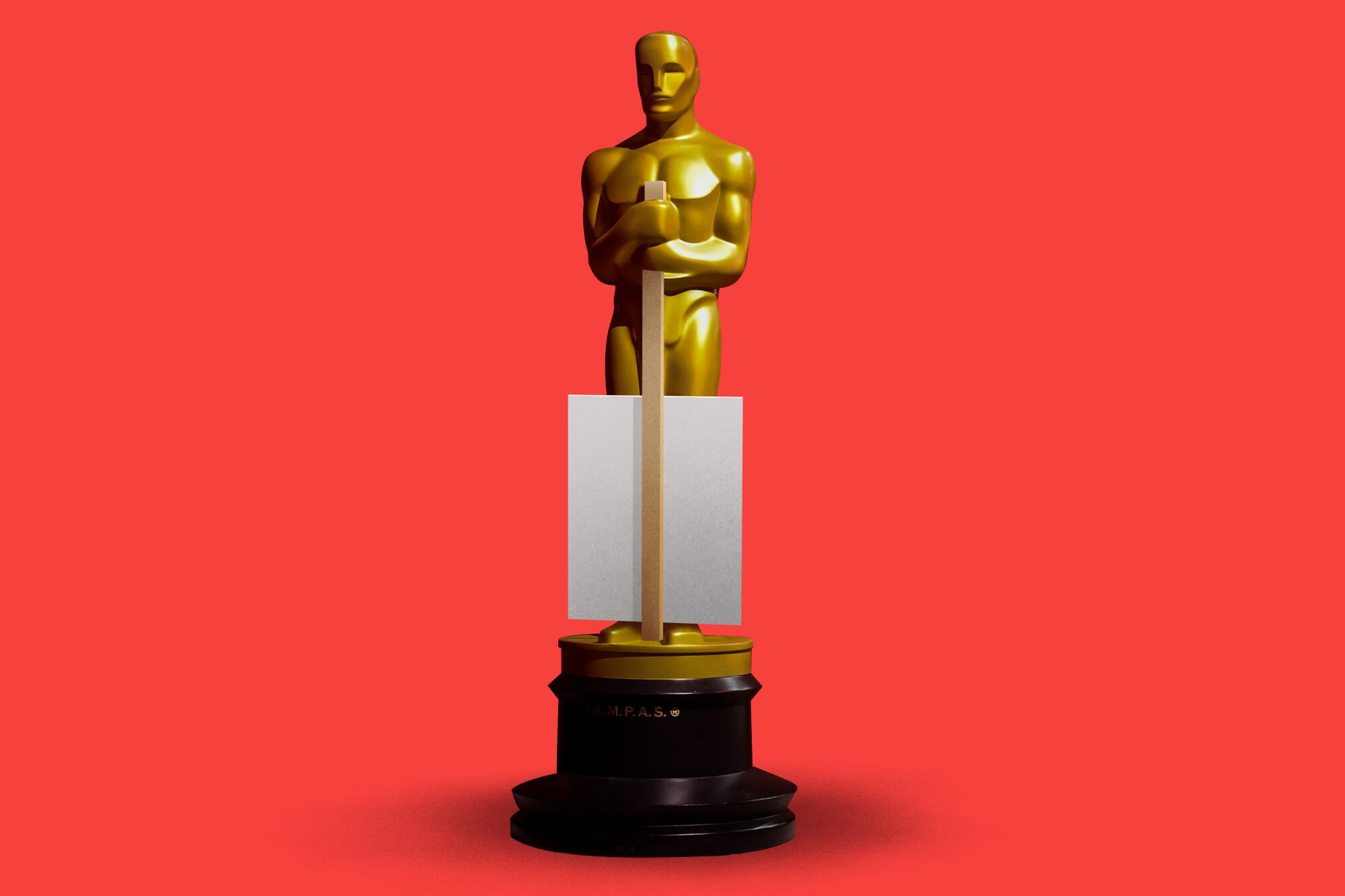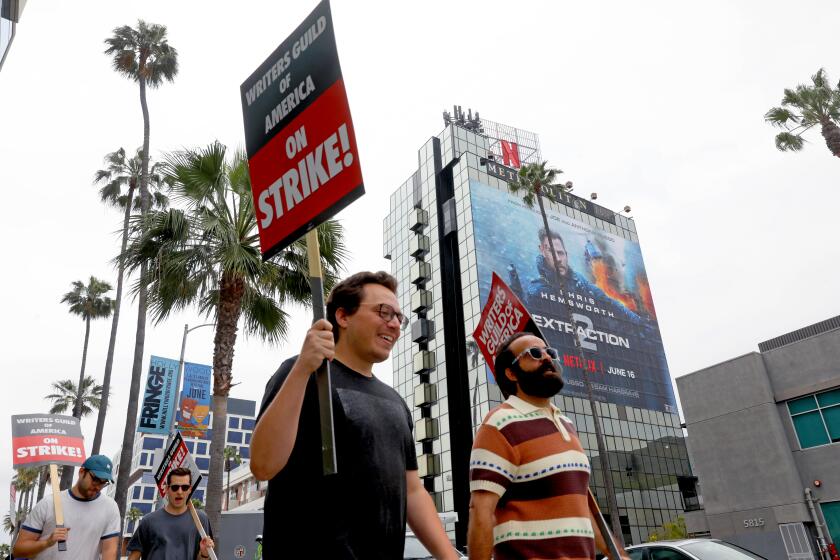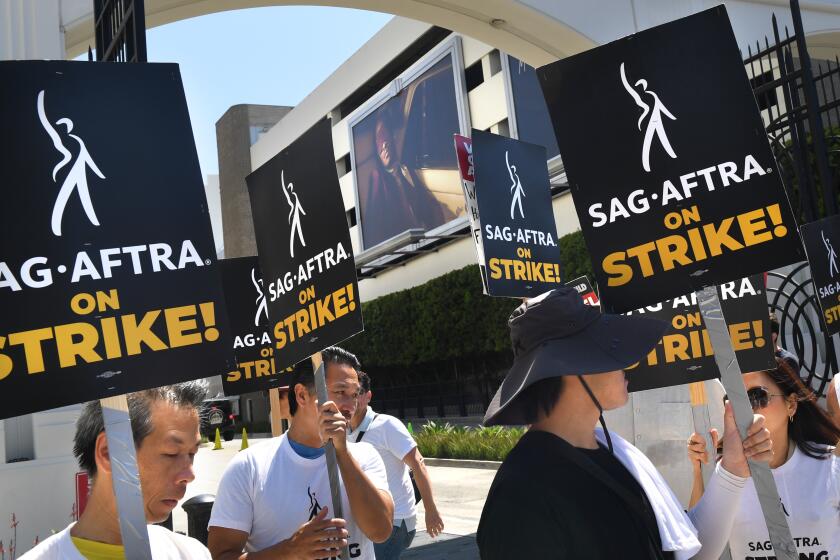
The last time Bradley Cooper took a movie to the Venice Film Festival, his leading lady, Gaga, made a grand entrance by boat — twice. On the red carpet, the two stars held hands and reveled in a sudden rainstorm; at a press conference, they talked about how hopelessly devoted they were to each other.
“There can be 100 people in the room and 99 don’t believe in you, and you just need one to believe in you, and that was him,” Gaga said for the first time — but not the last, as she’d repeat the line about Cooper ad infinitum while promoting the movie.
When Cooper’s directorial follow-up, the Leonard Bernstein biopic “Maestro,” premieres at Venice on Saturday, he won’t be on the Lido to talk about it, bask in the glow of a standing ovation after the movie ends or speak of his admiration for co-star Carey Mulligan, who plays Bernstein’s wife, Chilean actress Felicia Montealegre. Mulligan won’t be attending either, nor will most of the stars headlining movies premiering at the event. The ongoing actors’ and writers’ strikes have them sitting on the sidelines this year.
The major fall film festivals — Venice, Telluride, Toronto and New York — traditionally serve as launchpads for some of the year’s most anticipated movies, as well as the start of the awards season that culminates with the Oscars in March. Studios fly their movies’ headlining actors to these events to attend premieres, engage in countless interviews, accept tribute awards and glad-hand anyone who might help hype their projects. They’re Hollywood’s equivalent of what political candidates endure at the Iowa State Fair — but with better wardrobes and stylists.
This year, because SAG-AFTRA rules prohibit striking actors from doing promotional interviews, the stars mostly won’t be out at the festivals. And even in the cases of actors in independent movies that have signed interim agreements with the guild, allowing — even encouraging — them to show up and talk about their work, the level of engagement looks to be minimal. Early reports had Adam Driver, who stars with Penélope Cruz in Michael Mann’s high-profile “Ferrari,” jetting in and out of the festival. but his rep says he will take part in the festival press conference and do selected interviews.
Signaling increasing frustration with the Writers Guild of America, Hollywood studios took the unusual step of publicizing their latest offer to the guild.
The situation is, as they say, fluid. Talking to personal publicists and awards consultants around town — all commenting on the condition of anonymity to speak freely — there is only one certainty at the moment: Everyone is watching to see what everyone else is going to do. And if Driver, say, turns up at the “Ferrari” premiere wearing a T-shirt with language or graphics supporting the striking writers and actors, expect pro-worker chic to become the new red-carpet standard.
“No one wants to break the seal,” says one awards campaigner who has several films playing at the major festivals. “People are terrified about the optics. No one wants to get roasted on social media because they went to a premiere and said the wrong thing or wore a dress that was deemed too fancy.”
With the Oscars seven months away, does any of this really matter? In many respects, no, particularly against the backdrop of actors and writers fighting for their livelihoods while studio and streamer execs cool out on their $500-million super yachts.
But what happens at these festivals often establishes a template for what is to come throughout the endless awards season. When Brendan Fraser received a six-minute standing ovation at Venice last year following the premiere screening of “The Whale,” cameras caught him getting choked up. Immediately, a comeback narrative was born.
“That moment started his Oscar campaign,” one awards consultant says. “Hell, that moment might have won him the Oscar.”
Such moments figure to be in short supply in Venice, though apparently actors from other movies with interim SAG agreements like Mads Mikkelsen (starring in the Danish drama “The Promised Land”) and Caleb Landry Jones and Jojo T. Gibbs (part of the ensemble in Luc Besson’s boundary-pushing “Dogman”) will be attending.
“I still feel like there’s going to be some moments of excitement there,” one publicist says.
Meanwhile, Telluride, which starts Thursday, will be largely unaffected by the strikes, as its removed Rocky Mountains setting has always catered more to filmmakers and cineastes than celebrities. Toronto, on the other hand, relies on red-carpet events. As such, TIFF has gone heavy on movies directed by stars this year, including films by Ethan Hawke (“Wildcat”), Michael Keaton (“Knox Goes Away”), Anna Kendrick (“Woman of the Hour”), Viggo Mortensen (“The Dead Don’t Hurt”), Chris Pine (“Poolman”) and Kristin Scott Thomas (“North Star”) in its 11-day event, which begins Sept. 7.
The muted fall festivals could lead to an awards season that’s backloaded with promotional blitzes tied to films’ release dates, with later, smaller film festivals like Mill Valley and SCAD Savannah taking on added importance. But that’s contingent on the strikes ending. It’s possible that the labor unrest continues all the way through next year, perhaps giving the Oscar nominations in January added importance, particularly to later-arriving movies like Ridley Scott’s “Napoleon” and the musical version of “The Color Purple.”
With writers and actors on strike, the studios have a full-blown labor revolt on their hands — and they have no one but themselves to blame.
“Maybe we’ll return to a year where some of these films get a real Oscar bump and make much of their money after the nominations,” one consultant says.
Adds another: “Everyone always complains — not without justification — about how long and repetitive the awards season is. Well, this year, the strikes are going to shorten it. Who knows by how long. But if they are settled later this fall, you’re going to see studios scrambling to get their movies some awards traction ... and that could be kind of fun.”
One movie sitting out the season will be Denis Villeneuve’s highly anticipated “Dune: Part Two.” Warner Bros. announced last week it was pushing the film from November to March 2024 as the ongoing actors strike would prevent stars Timothée Chalamet and Zendaya from promoting the big-budget sci-fi sequel. The first “Dune” installment earned 10 Oscar nominations, including best picture, and won six trophies.
But amid all the uncertainty, there is one awards season lock: “Barbenheimer” will be as ubiquitous at the Oscars as it was at the box office and pop culture this summer. The simultaneous release of Christopher Nolan’s “Oppenheimer,” a breathtaking biopic about the father of the atomic bomb, J. Robert Oppenheimer, and Greta Gerwig’s clever, creative blockbuster “Barbie” made for a thrilling theatrical event that, for the first time in seemingly forever, got people talking about the movies again. That, combined with the films’ estimable craft, will be impossible to ignore.
“They have a remarkable head start,” says a rival awards campaigner, who thinks both films could score at least 10 nominations. “Everybody knows them. Almost everybody loves them. I mean ... a whole bunch of people showing up at the Oscars wearing pink? That’d be a dream scenario for the academy.”
More to Read
Inside the business of entertainment
The Wide Shot brings you news, analysis and insights on everything from streaming wars to production — and what it all means for the future.
You may occasionally receive promotional content from the Los Angeles Times.













